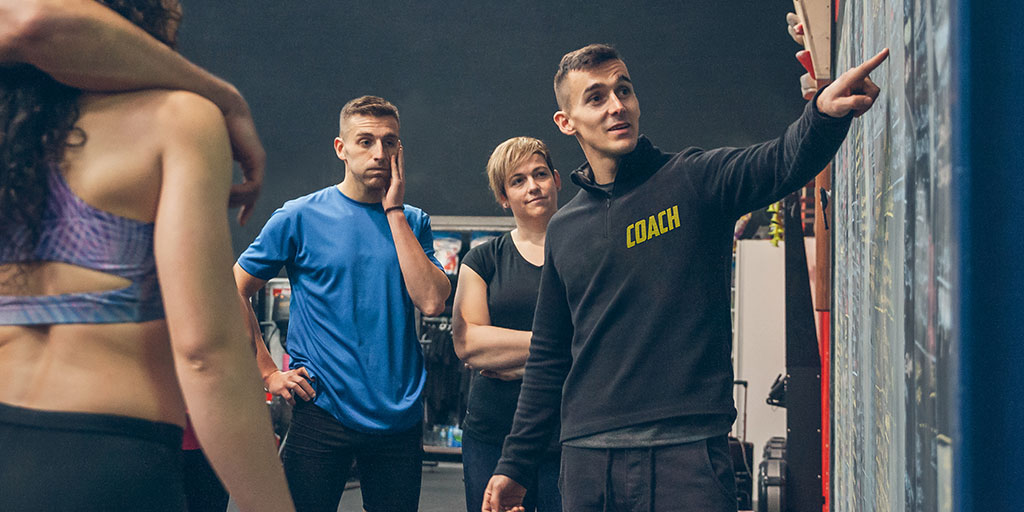Developed for and by the activities and sports sector, the Level 4 qualification is designed to offer an industry-standard course to expand the knowledge and performance of coaches. Apprentices have nine core duties, then must choose one of three optional pathways to develop individuals into either school, community or high-performance coaches.
Who is it for?
The course provides aspiring coaches with professional recognition from The Chartered Institute for the Management of Sport & Physical Activity (CIMPSA) and an opportunity to specialise in the area of his or her choosing. It has a broad scope offering coaching theory and philosophy as well as practical enrichment and work experience.
Those that will excel in this course are those who aspire to senior roles in coaching. Apprentices will benefit from the organisational and administrative sides of the course that prepare them to manage and deliver school curriculums and build frameworks for excellence. It surpasses the physical attributes of the coach with an understanding of how to express the vital work coaches perform to stakeholders at all levels.
Why do I need a Level 4 apprenticed coach?
Level 4 apprenticed coaches represent the next level of organisational and physical mastery. It assures your business of the highest levels of understanding and professionalism and shows your commitment to your employees and the work they do. The course puts coaching within a wider framework. Looking at the impact that it can have and how those case studies can produce better outcomes.
The pandemic has shown that fitness for athletes, young people and people of all ages and abilities is of paramount importance. It is the first vanguard in creating a more resilient population to disease, can increase cognitive capacity in children and is a great way to alleviate mental stress.
Apprentices who achieve all assessment outcomes will be able to produce meaningful plans with financial impact for future generations. From reducing conditions related to obesity to coaching the next star athletes, their expertise will lead organisations from a position of knowledge and experience.
It’s the only industry-standard qualification that provides specialisms into the three most important and lucrative positions in the sector. So your business will benefit from being on the forefront of research, development and expertise in this field.
What will apprentices have to do?
Apprentices will undertake three assessments designed to test their written, analytical, and practical skills. The assessments will test their knowledge of the following:
- The ability to develop a coaching philosophy and use it proactively
- To understand coaching methods and learning styles
- To understand how external issues in the wider world impact coaching
- To develop Participant Profiles with a view to using them to create coaching plans
- To understand schools as organisations with standards and targets
- To plan, deliver and review PE curriculums and extracurricular sports activities to meet the goals of organisations
- To develop a knowledge of educational standards, trends, frameworks and contemporary influences
The focus will be to test their ability to produce plans, shape and evolve programs of activities and coaching in a way that takes into consideration how the structures around them work.
Which pathway will you choose?
Coaching Pathway | Stakeholders | Targets | Focus(es) |
High Performance Sports Coaches | Athletes, players, parents, peers, managers, sponsors, professional organisations, national governing bodies, sports medics, performance analysts | To develop athletes and players in high-performance setting, including those on talent or development pathways, national or international programmes, professional or podium environments | Bio-psycho-social attributes, sports -specific technical and tactical skills to set development and performance goals. Includes creation of a high-level curriculum plan |
Community Sports Coaches | Children, parents, assistant coaches, peers, managers, local authority staff, charitable workforces, national governing body regional teams | To motivate and engage people of all ages and abilities in community sports and physical activity settings. Community sport includes local authority, charity and national governing body of sport community initiatives or clubs. | Focussed on participants cognitive, social, emotional and physical needs and use physical activity to reach already agreed upon goals. Plans will include high-level curriculum planning and a consideration of the gaps in the current provision |
School Sports Coaches | Children, carers, peers, support staff, SENCO staff, safeguarding officers, teaching assistants, teachers, head teachers, school boards. Wider networks include local authority teams and social services | To collaborate with teachers to develop pupils’ mastery of psychomotor skills by applying a whole child approach in their coaching. They work in all categories of school and registered childcare environments | To focus on children’s cognitive, social, emotional and physical development needs. Measuring psychomotor, technical and tactical skills in a range of physical activity drawn from goals set by the DfE’s national curriculum. |
First Step Training is committed to providing a level of training that can compete with the present. Get in contact with the team today to find out how you can start your journey to coaching excellence.



